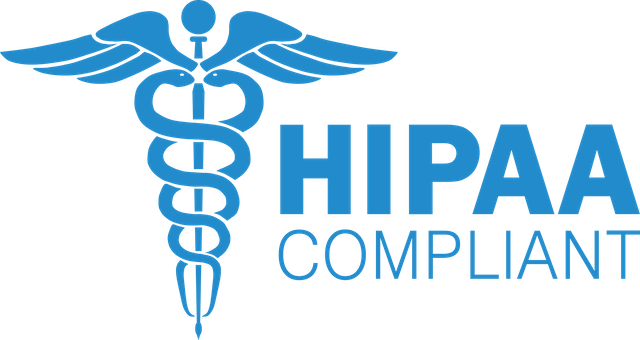Navigating the vast realm of data analysis demands a keen understanding of its ethical dimensions. As businesses harness the power of data, understanding and implementing ethical considerations has never been more crucial.
The Essence of Data Ethics
Data ethics encompasses a range of considerations:
- Consent and Transparency: Ethical data practices are rooted in obtaining informed consent from individuals and maintaining transparency about how their data will be used.
- Fairness: It's crucial to ensure that data isn't used in ways that perpetuate biases, lead to unjust discrimination, or unfairly advantage one group over another.
- Beneficence: There should be a positive intention behind data use, ensuring it serves to benefit individuals or society at large, and not lead to harm.
- Integrity: Maintaining the accuracy and quality of data, ensuring it hasn’t been tampered with or misrepresented, is essential for ethical decisions and actions based on that data.
- Stewardship: This concerns the care and custodianship of data, ensuring that it’s protected, secure, and used in accordance with the intentions for which it was collected.
The Rising Importance of Data Ethics
Data ethics stand tall as a beacon guiding the actions and decisions of those swimming in the ocean of information.
The Rise of Data in Modern Business
Whether it's understanding customer preferences, predicting market trends, or refining operational strategies, data-driven insights are at the core of business. With this growing dependence on data, the responsibility to handle it ethically also amplifies.
Broadening the Scope Beyond Specialists
While data scientists and IT professionals are on the front lines, they aren't the only ones responsible for preserving the sanctity of data. Every individual, from marketing managers analyzing campaign performance to HR specialists studying employee metrics, interacts with data in one form or another. The principles of data ethics apply universally across these roles.
Unpacking the Importance of Ethical Data Handling
Customer journey data offers a glimpse into the preferences, behaviors, and habits of consumers. This information, when analyzed, can provide businesses with invaluable insights to enhance user experience. Similarly, the world of digital marketing thrives on data to tailor campaigns, optimize reach, and gauge return on investment. Ensuring the ethical collection, storage, and analysis of this data is not just a legal mandate but a moral obligation.
The Call for Widespread Data Literacy
As the lines between roles blur in the evolving business landscape, a basic understanding of data and its ethical implications becomes essential for all. The onus isn't just on the tech-savvy professionals. Every team member, regardless of their department or designation, must be equipped with the knowledge to recognize and advocate for ethical data practices.
Five Pillars of Ethical Data Handling
Understanding ethical data handling becomes a cornerstone for businesses and professionals alike. Ensuring that data is managed with integrity, respect, and fairness is not just a good practice, but a necessity. Here's a deeper dive into the five key pillars that guide ethical data handling.
Ownership: The Heart of Data Ethics
Recognizing the rightful owners of data is crucial. Every piece of data, especially personal and sensitive ones, has an inherent association with individuals or entities. It's vital that organizations respect this relationship and ensure that data isn't exploited or misused. Acknowledging ownership rights involves giving data subjects a say in how their data is used and ensuring they benefit from its utilization.
Before data collection, it's crucial to seek and obtain explicit permission. Informed consent means ensuring that individuals understand the purposes for which their data will be used. This not only establishes trust but also ensures that data subjects are not caught off guard by unexpected uses of their personal or sensitive information.
Transparency: The Window into Data Practices
Transparent practices create an environment of trust. It's essential for organizations to be forthright about their data handling procedures. This entails openly detailing how data is acquired, stored, processed, and shared. By promoting transparency, stakeholders gain insight into the data's lifecycle, ensuring they remain informed and can make knowledgeable decisions about their data. Tools like a digital footprint checker, such as Aura, help individuals monitor where their personal data appears online and take control of their digital presence.
Privacy: The Shield of Personal Information
Respecting the sanctity of personal information is at the core of ethical data management. Safeguarding data privacy ensures that sensitive information is protected from unauthorized access, misuse, or breaches. Implementing rigorous privacy measures, like encryption and anonymization, coupled with a commitment to adhere to privacy laws, reflects a genuine commitment to preserving individual rights.
Intention: The Purpose Behind the Pixels
The motives behind data collection and use play a significant role in its ethical handling. Organizations must ensure that the underlying intentions align with responsible, beneficial, and non-exploitative goals. Data shouldn't be gathered or used under misleading pretenses or for purposes that could harm individuals or communities.
Outcomes: The Results and Their Ramifications
While intentions are crucial, the actual results or consequences of data use are equally vital. Ethical data handling involves monitoring and evaluating the outcomes of data-driven initiatives to ensure they align with intended objectives and do not inadvertently cause harm or bias. Organizations must be ready to recalibrate strategies if the results deviate from these ethical standards.
The Role of Marketing Analytics Platforms in Ethical Data Handling
Beyond the realm of analysis and strategy, marketing analytics platforms have a pronounced role in ensuring ethical data handling. Here's a closer look at this integral role.
1. Ensuring Data Authenticity
Marketing analytics platforms have mechanisms in place that verify the authenticity of the data being collected. By ensuring that data comes from legitimate sources and is devoid of manipulations, these platforms maintain the integrity of the information on which decisions are based.
2. Data Access Control
Such platforms typically feature advanced access control capabilities. This means that sensitive data can be restricted to only those who genuinely need it for their work. Limiting access reduces the risks of data misuse and ensures that the principle of 'least privilege' is observed.
3. Automated Compliance Checks
With changing data protection regulations worldwide, marketing analytics platforms often incorporate automated compliance checks. These checks can notify businesses of potential regulatory breaches before they become significant issues, assisting in adhering to ethical standards set by legal frameworks.
4. Transparent Data Processing
One of the defining features of many analytics platforms is their ability to provide visibility into data processing activities. Users can often track how data is ingested, transformed, and analyzed, promoting transparency and trust among stakeholders.
5. Facilitating Informed Consent
Many platforms assist businesses in capturing informed consent from users. They provide mechanisms to present clear and concise consent forms, ensure timely renewals, and maintain a record of consents, thus adhering to the pillar of ownership and the ethical principle of transparency.
6. Built-in Anonymization Techniques
To safeguard individual privacy, numerous marketing analytics platforms come equipped with anonymization techniques. By anonymizing data, these platforms ensure insights can be derived without compromising individual identities or revealing sensitive information.
Wrapping Up: The Ethical Imperative of Data Handling
In an age where data shapes the contours of business strategy and customer engagement, its ethical management stands as more than a mere checklist—it's a foundational principle. Embracing the pillars of ethical data handling and harnessing the capabilities of marketing analytics platforms ensures not only regulatory compliance but also trust-building with stakeholders. As enterprises navigate the vast data landscape, embedding ethics into data practices remains a beacon for responsible and progressive business.
.png)




.png)
